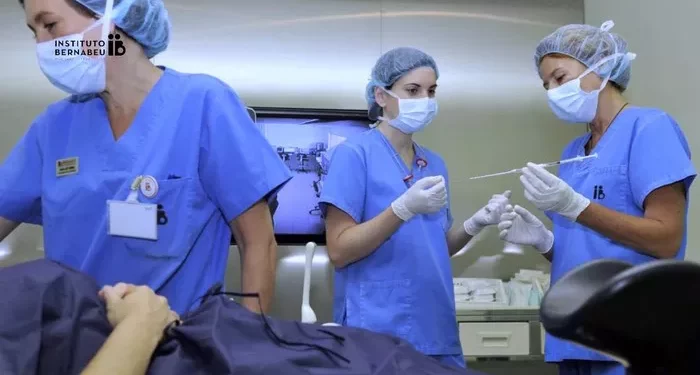Azoospermia is a medical condition characterized by the absence of sperm in the ejaculate, resulting in male infertility. It affects approximately 1% of the male population and is found in 10-15% of infertile men. There are two primary types of azoospermia:
1. Obstructive Azoospermia: This occurs when sperm production is normal in the testes, but there is a blockage or obstruction in the male reproductive tract that prevents sperm from being present in the ejaculate. Common causes include vasectomy, infections, congenital absence of the vas deferens, or physical trauma.
2. Nonobstructive Azoospermia: This type is due to a problem with sperm production in the testes themselves. It can be caused by genetic abnormalities, hormonal imbalances, varicocele, undescended testes, or exposure to certain toxins or medications.
Prevalence
Azoospermia is relatively rare, affecting about 1 in 100 men in the general population. Among men seeking treatment for infertility, azoospermia is found in approximately 10-15% of cases. This significant prevalence underscores the importance of effective diagnostic and treatment approaches to address this condition.
Causes
The causes of azoospermia are diverse and can be categorized into genetic, medical, and lifestyle factors:
1. Genetic Conditions: Chromosomal abnormalities such as Klinefelter syndrome (47,XXY) and Y chromosome microdeletions are common genetic causes. Mutations in specific genes involved in sperm production can also lead to azoospermia.
2. Medical Treatments: Treatments for cancer, such as chemotherapy and radiation, can adversely affect sperm production. Additionally, surgeries involving the reproductive organs or pelvic region can result in obstructive azoospermia.
3. Lifestyle Factors: Environmental exposures, such as toxins, radiation, and heat, can impair sperm production. Lifestyle factors like obesity, smoking, excessive alcohol consumption, and the use of anabolic steroids can also contribute to the development of azoospermia.
Diagnosis
The diagnosis of azoospermia involves several steps:
1. Semen Analysis: This is the first test conducted to determine the presence of sperm in the ejaculate. It typically involves collecting multiple semen samples over a period to confirm azoospermia.
2. Physical Examination: A thorough physical examination by a urologist helps identify any anatomical abnormalities, such as varicocele or absence of the vas deferens.
3. Hormonal Evaluation: Blood tests are conducted to measure hormone levels, including testosterone, follicle-stimulating hormone (FSH), and luteinizing hormone (LH). Abnormal levels can indicate issues with sperm production or hormonal imbalances.
4. Genetic Testing: Genetic tests are recommended for men with nonobstructive azoospermia to identify potential chromosomal abnormalities or gene mutations.
5. Testicular Biopsy: In cases where the cause of azoospermia is unclear, a testicular biopsy may be performed. This involves taking a small sample of testicular tissue to examine for the presence of sperm and assess spermatogenesis.
Treatment Options
Several treatment options are available for azoospermia, tailored to the specific type and underlying cause of the condition:
Surgical Interventions:
1. Varicocelectomy: Surgery to repair a varicocele can improve sperm production in some men with nonobstructive azoospermia.
2. Vasovasostomy and Vasoepididymostomy: These microsurgical procedures are used to reverse vasectomy or bypass obstructions in the reproductive tract, restoring the passage for sperm.
3. Hormone Therapy: Hormonal imbalances that affect sperm production can be treated with hormone replacement therapy or medications that stimulate spermatogenesis.
Assisted Reproductive Techniques (ART):
1. Sperm Retrieval: Techniques like testicular sperm extraction (TESE), microdissection TESE (micro-TESE), and percutaneous epididymal sperm aspiration (PESA) are used to retrieve sperm directly from the testes or epididymis in men with both obstructive and nonobstructive azoospermia.
2. In Vitro Fertilization (IVF) and Intracytoplasmic Sperm Injection (ICSI): Retrieved sperm can be used in conjunction with IVF and ICSI to fertilize an egg. ICSI involves the direct injection of a single sperm into an egg, enhancing the chances of fertilization, particularly in cases of male infertility.
Research and Advances
Ongoing research continues to advance the understanding and treatment of azoospermia. One promising area is the use of stem cells to create sperm. Scientists are exploring ways to differentiate stem cells into sperm cells in vitro, which could provide new avenues for men with nonobstructive azoospermia who currently have limited options.
Another innovative approach involves gene editing technologies like CRISPR-Cas9 to correct genetic defects that impair spermatogenesis. While still in experimental stages, these advancements hold the potential to revolutionize the treatment of genetic causes of azoospermia.
Choosing a Treatment Center
Selecting the right treatment center is crucial for successful outcomes in azoospermia treatment. Consider the following factors:
1. Global Reputation: Choose a center with a strong reputation for excellence in male infertility treatment. Look for institutions that are leaders in research and have published significant findings in reputable medical journals.
2. Convenience: Consider the location of the center and the convenience of travel, especially if repeated visits are necessary for treatment and follow-up.
3. Sensitivity and Comprehensive Care: The emotional and psychological aspects of infertility can be challenging. Opt for a center that offers comprehensive care, including counseling and support services, to address both the physical and emotional needs of patients.
4. Expertise and Experience: Ensure the center has experienced and highly skilled specialists in male infertility, particularly in advanced surgical and ART techniques.
Conclusion
In conclusion, azoospermia is a complex condition with various causes and types, but modern medical advancements offer effective treatments that can help many men achieve fatherhood. By understanding the condition, seeking proper diagnosis and treatment, and choosing a specialized center, men with azoospermia can have a good chance of overcoming infertility and realizing their dream of having children. The ongoing research and technological advances promise an even brighter future for those affected by this condition.
Related Topics:
The Cost of IVF Treatment in the United States: A Quick Guide



























